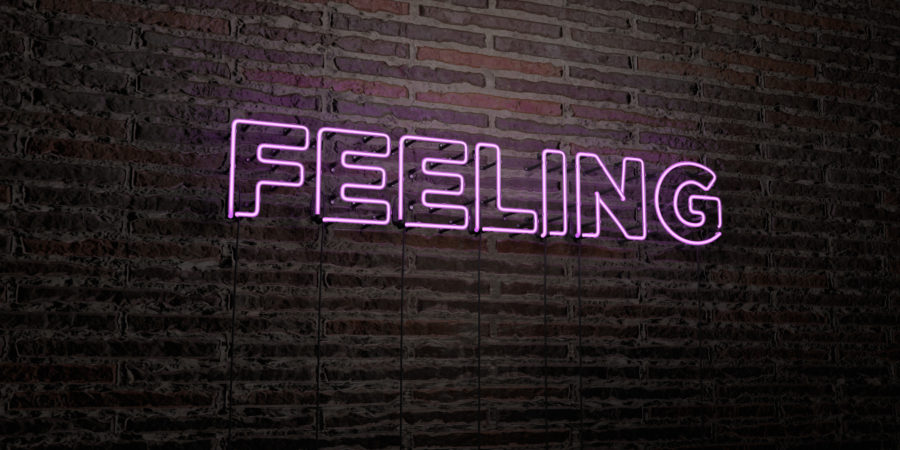9 Traps of Childhood Emotional Neglect During the Holidays

Childhood Emotional Neglect (CEN) permeates your everyday life. And there are some situations that can make CEN struggles even more present and challenging. One of them is the holiday season.
Notice the picture accompanying this post. I chose it for a special reason, and I want to start by apologizing for it. It is a perfect example of the pressure society puts on everyone throughout the holiday season. Commercials, ads, and images abound which show warm, happy families or beautiful people smiling with gifts.
Be joyous!
Be merry!
We’re a loving, close family!
The pictures call out to us day after day.
As a specialist in Childhood Emotional Neglect (CEN), I see how this affects many people. There is no time of year when folks are under this much pressure to feel. And even more challenging: you’re supposed to feel happy.
I have followed many emotionally neglected people through many holiday seasons, and I have seen how they often experience them. Under pressure to feel, the holidays can seem vaguely disappointing and burdensome for those who grew up emotionally neglected.
Childhood Emotional Neglect happens when your parents raise you in a way that does not pay enough attention to your emotions. Childhood Emotional Neglect leaves you with a particular set of struggles within yourself, and also with your family, throughout your adult life.
As you read the list of special challenges below, I encourage you to think about yourself and whether each one applies to you. Knowing and thinking about these challenges before they happen, or as they are happening, will help you minimize their effects on you this holiday season and beyond. First, let’s talk about the general effects of growing up with your emotions ignored.
Year-Round Struggles of the CEN Person
- You feel deeply that something is not right with you. But you have problems understanding what’s wrong or why.
- Your emotions are walled off, making it hard to experience the depth of feelings that other people have.
- Being out of touch with your feelings makes your relationships seem less rewarding, leaving you feeling, on some level, alone.
- You naturally put other people’s feelings and needs before your own.
- You are prone to getting angry at yourself and blaming yourself.
9 Traps of Childhood Emotional Neglect During the Holidays
- It makes your tendency to put others first even more exaggerated. When your parents failed to notice your feelings and emotional needs in your childhood, they give you the message that your feelings and needs are unimportant. This plays out powerfully during the holidays when you are prone to be too worried about making other people happy, and not paying enough attention to yourself.
- It can make you feel even more alone. With your feelings walled off, it is hard to connect with other people on a deep and meaningful emotional level. During the holiday season, you feel the expectations of the season. Portrayals of loving, warm families gathered around a fire, candles or a Christmas tree make you feel even more acutely what is missing in your own.
- You are vulnerable to missing out on what matters the most. Lacking full access to your own emotions has another effect. It can result in you going all the way through the holidays focusing on gifts, decorations, and pleasing others instead of the feeling part of the experience. This is also something that is very hard to realize in yourself because it’s difficult to know what you are missing.
- You are prone to the Holiday Trap: Looking forward to your family holiday event and then feeling disappointed and let down. Emotionally neglectful families often can appear perfectly normal from the outside. So you are vulnerable to expecting to feel happy and connected with your people, only to feel the lack of true emotional connection when you see them. This can lead to a roller-coaster experience: happy, excited expectations followed by a disappointing letdown.
- Being around your family continues your CEN. If your parents emotionally neglected you in your childhood, chances are high that they are still doing so. You will feel it when you see them for the holidays, and probably you will feel it even more when surrounded by the trappings of the holidays. This is one of the main causes of the disappointment described above.
- Once you’re aware of CEN it makes you see your parents and siblings differently. Seeing Emotional Neglect in your family changes how you view your birth family in some powerful ways. You begin to see that what seemed benign before is actually hurtful and harmful to you. This may make you feel angry or frustrated with them.
- The pressure to be joyous makes you feel lacking. CEN makes it hard to feel as intensely as others do, and it also makes you prone to feeling empty at times. For many with CEN, the pressure to feel joy makes it even more obvious that something is missing in your life. You may experience the emptiness even more.
- Your tendency toward self-anger and self-blame gets triggered. You may feel angry at yourself for overeating, not exercising enough, or for saying something you regret. There are many opportunities to do any or all of these things during the holidays.
- You are more likely to find yourself running on empty. Riding the roller-coaster of disappointment, surrounded by family but feeling alone, over-focused on others at the expense of yourself, and out of touch with the energy of your feelings, you are likely to power through the holidays by sheer force of will, all the while growing ever more drained day by day.
What To Do
Although the CEN ship has already sailed through your childhood, it is never too late to turn that ship around. But to do so, you must be proactive. Now that you see what’s been dragging down your holidays for years, you are in a good position to start making things different for yourself.
In the short term, now before the holidays, start treating yourself more as if you matter. Set aside time every single day to do something that nurtures you. Pay attention to the feelings you are having each day, and accept what you feel without judgment. Make sure you get enough rest, healthy food, and fresh air, and spend time with someone you enjoy.
And most importantly, start healing the roots of what’s wrong: your Childhood Emotional Neglect.
To get started, Take the CEN Test. It’s free. Then watch my Free CEN Breakthrough Video Series on YouTube!
You deserve a happy holiday season. My warmest holiday wishes to you!
A version of this article first appeared on psychcentral.com. It has been republished here with the permission of the author and Psychcentral.
Why Emotional Neglect and Depression Are Often Experienced Together

Why are Emotional Neglect and depression often experienced together?
Let’s start with a brief refresher on Childhood Emotional Neglect (CEN), how it happens, and how it plays out through the neglected child’s adult life.
Childhood Emotional Neglect happens when your parents fail to respond enough to your emotions as they raise you.
This usually unmemorable childhood experience is deceptively powerful. It gains its impact from the fact that it happens daily, subliminally, and under the radar. The child receives the message:
Your emotions are not important, not relevant, or not welcome here in your childhood home.
Children who receive this message often as their brains are developing naturally adapt to their situation. They automatically wall off their feelings so that they will not be a burden to their parents in their childhood home.
This naturally adaptive step is truly an amazing solution. But, sadly, it backfires in many ways as the child grows into adulthood. One of those ways is by making you more vulnerable to depression.
5 Ways Childhood Emotional Neglect Makes You More Vulnerable to Adult Depression
You’ve walled off your pain and it now weighs you down.
When you were a child, you learned to push all of your feelings away. This became your primary way of dealing with difficult emotions. When your feelings were hurt, instead of using this as an important message from your body, you tended to push it away. Throughout the decades of your life, this is how you have managed most of your sadness, loss, anger and other pain. But, unfortunately, blocked off feelings never really go away. They collect, all swirled together, on the other side of your wall. Since you’re unaware of them you can’t process them. They may arise at times when you least expect them, and they also weigh you down, sapping your energy and making your world feel heavy or gray. They make you more vulnerable to depression.
Your joy is blocked off, along with all your other emotions.
Blocking off feelings is usually not possible to do in a discriminating way. Unfortunately, you cannot choose to wall off some emotions and not others. So when you block of negative emotions you also lose your positive ones. You may find it difficult to experience happiness, enjoyment, and reward as intensely as other people can. This makes you more vulnerable to becoming depressed.
You are out of touch with what you want, need or enjoy.
Why don’t you know these things well enough? Because the way to know what you want is by feelings like desire, craving or longing; the way to know what you need is by feeling deprived or needy; and the way to know what you enjoy is by feeling rewarded, pleased, happy or pleased. When you are cut off from your own feelings, you are not able to know these things as well as you should. This makes it difficult to seek what you should be seeking, or make yourself happy. This makes you more likely to become depressed.
Even when you know what you would enjoy, it’s hard for you to prioritize your own needs.
Since few folks are 100% removed from all of their feelings, there are probably times when you do know what you want, need or will enjoy. But when you grew up with Emotional Neglect, you learned to keep your wants and needs to yourself. So even if you do know what you would like, something deep inside stops you from requesting it. Other people’s wants and needs always seem more important or more legitimate, and you allow your own to fall between the cracks. Unlikely to prioritize your own wishes, you are unwittingly making yourself more likely to become depressed.
You may have made some life decisions that aren’t right for you.
A funny thing happens when you are not connected with your feelings: you don’t get to make major life decisions based on your feelings. And, after all, our feelings are our most effective guides to our true selves. This is why so many people who grew up with Childhood Emotional Neglect end up in jobs, marriages, and locations that are not quite right for them. Going through the motions, living the life that chose you instead of the life you chose to live, you may find yourself feeling off-kilter, unfulfilled, and somewhat at-sea in your adult life. This lowers your defenses to depression.
What You Can Do If You Are Prone To Depression
Not all people who grew up with Emotional Neglect end up with depression, but many do. The reality is that the feelings that we allow ourselves to feel, even if they hurt, inform us. They tell us what to do to fix things, and how to make ourselves happy. But feelings that are walled off are able to do none of those things for us. Instead, they hang over our lives like a dark cloud.
But that dark cloud need not be a part of your life forever. You can access those old feelings and process them now, and they will lose their power over you.
You can learn a new way to allow yourself to feel and use your current feelings too. And both of these new skills will not only make you less depressed, but they will also make you less likely to become depressed in the future.
Start paying attention to your feelings as your friends and helpers.
Start expressing your wants, needs, and wishes.
You can learn much more about how to heal your Childhood Emotional Neglect throughout this site. To go even deeper into the healing process, see the book, Running On Empty: Overcome Your Childhood Emotional Neglect.
To learn how Childhood Emotional Neglect affects your relationships, and how to heal those effects, see the book, Running On Empty No More: Transform Your Relationships With Your Partner, Your Parent & Your Children.
Why Understanding What Makes You Feel Emotionally Numb Is The First Step To Feeling Again

Way back in 2008, an amazing thing happened that changed everything. It changed the way I saw myself and parented my children. Ultimately, it changed the way I practice psychology. Here’s what happened.
I was busy seeing clients in my psychology practice. I was working with couples, individuals, and families. I was treating problems like depression, marriage and family conflict, anxiety, communication problems, anger and more. Some of my clients had traumatic or abusive childhoods, and some did not. My clients were a varied mix: plumbers, doctors, salespeople, secretaries, scientists, stay-at-home parents, and more.
Many of my clients had very little in common with each other, yet I began to see a pattern among them that appeared over and over again.
A remarkable number of very different people tried to express a particular burden to me — a burden they had carried through their lives and felt deeply, but never had the words to express. They all said it differently:
I am not like other people.
I’m missing something.
I feel empty.
I’m not alone, but I feel alone.
I am numb.
These folks were not damaged, traumatized, or mentally ill. There was no diagnosis to capture their struggle. They weren’t actually different, or empty, or alone, but they felt this way for a reason. It took me two years of delving into the question and researching to find the answer, and when I did I was very surprised.
The answer was deceptively simple, and not at all what I had expected. The cause of this burdensome feeling was the one life experience all these varied people shared. They had all grown up with their feelings ignored (Childhood Emotional Neglect, or CEN).
As children, they all had learned that their emotions were not accepted in their childhood homes. As children, they all had, out of necessity, walled their emotions off. Now, as adults, they were emotionally numb.
Becoming aware that you are emotionally numb is painful, for sure. But understanding the reason why can be surprisingly hard to do. Yet it is the first step to stopping the pain of numb.
How Do I Take The First Step?
- Think back and try to remember the times and ways that your parents failed you emotionally. Did they fail to notice when you were sad, hurt, angry or anxious? Did they fail to ask you what you wanted and needed? Did they not get to know you in the most deeply personal way — emotionally?
- Understand that your parents probably did come through for you in some important ways. The problem is they did not come through for you emotionally enough, and you are now left with the results.
- Accept that your brain did what it needed to protect you. It walled off your emotions to protect your parents (and you) from them in your childhood home.
- Realize that numbness is a feeling that comes and goes. Like every other feeling, it is your body talking to you. It is saying, “Wake up. Pay attention. Something is not right.”
The Amazing Shift That Happens When You Finally Understand
Since I wrote Running On Empty and Running On Empty No More, I now work almost exclusively with folks who grew up with Childhood Emotional Neglect (CEN). As a therapist, it is the most rewarding work that I have ever done. Walking my clients through the steps of understanding is like walking them inward, toward their true selves.
Understanding that you are numb because your emotions are blocked off frees you up in a truly amazing way. Suddenly you realize that you are not damaged after all, and also that you did not ask for this. Suddenly you realize that your lifelong struggle is there for a reason and that it’s not your fault. You see that what you thought was missing, your emotions, are still there after all.
This is the vital first step to feeling again.
The Choice You Have To Make Now
Once you cross the line from being baffled and numb to understanding, you will have a big decision to make. You will need to answer this question:
Do you want your feelings back, or do you want to stay numb?
If you wish to stay numb, you can go on with your life. Just like always, you will sometimes feel glimmers of emotions, but probably not when you need them the most, and not with the depth and richness they should have. Sometimes you’ll be aware of the numbness, and sometimes you will not.
In contrast, if you want your feelings back you have some work ahead of you. But I assure you that, albeit scary at times, it will be the most rewarding work you will ever do.
It All Comes Down To Your Wall
Are you making the choice to feel? If not, I understand that you may not be ready yet. It’s okay because it’s never too late to come back when you are ready.
If you are making the decision to feel, I am proud of you. You have chosen to challenge yourself in a way that can change your life. And you can take comfort in the fact that there are answers for you.
Your path is well-defined, and you are in the comforting company of the many thousands of CEN people who have walked this path before you.
Bit by bit, you can follow the steps to CEN recovery. You can take down the wall that protected you as a child but is now in your way, holding you back, blocking you off, and keeping you emotionally numb.
Piece by piece, you can tear down that wall, and fill your empty space. Step by step you can learn the emotion skills you missed.
Inch by inch, you can move forward, reaping the rewards of finally accepting, and learning to love, your deepest, truest self.
To learn all about the steps of CEN recovery and how to take them, see the book, Running On Empty: Overcome Your Childhood Emotional Neglect.
To learn how CEN is interfering with your key relationships, and how to fix it, see the book Running On Empty No More: Transform Your Relationships With Your Partner, Your Parents & Your Children.
When You Feel Emotionally Numb, Do This To Feel More Alive

When you feel emotionally numb, what can you do? Is there anything that can make you feel better?
There are many feelings that can make us human beings uncomfortable. Anger, sadness, hurt, anxiety, fear, loss or grief, for example. Most of us would not choose to feel any of these. In fact, we will often go to great lengths to escape and avoid feeling them.
But there is one feeling that can be more intolerable than any of those. It’s in its own category because it is not like the others.
I have seen this feeling drive people to do extreme things to escape it, like take risks, harm themselves, put themselves in dangerous situations, or even consider suicide. Many people feel this feeling, but few have words to describe it.
I call this feeling the “unfeeling feeling.” The best way to describe it is a deep sense of emptiness or emotional numbness.
Here are some important facts to know about emotional numbness.
5 Important Facts About Emotional Numbness
- You have the unfeeling feeling for a reason, and you are not alone. Other people feel this way too. But everyone does not feel this way.
- The emotional numbness you feel is a message from your body. Your body is trying to tell you something, and it is vital that you listen.
- This message from your body is one of the most valuable and important ones you will ever receive.
- The message is this: Your feelings are blocked off.
- The likely cause of your blocked-off feelings, and hence your emotional numbness, is Childhood Emotional Neglect.
Childhood Emotional Neglect (CEN) happens when your parents fail to notice, respond to, and validate your emotions enough as they raise you.
When you grow up with your feelings ignored or unwelcome, your young brain builds a wall to block them off. It’s an effective coping mechanism that helps you avoid being a “problem” in your childhood home.
But this effective coping mechanism backfires when you grow up. As you move into adulthood, you need your emotions. If you were a boat, your emotions would be your engine, anchor, and rudder. They should be not only grounding and rooting you but also motivating, directing and guiding you.
When your emotions are blocked off, your body feels it. Something vital is missing. You sense this deeply, and it does not feel good. Just as your body knows when you are hungry or thirsty, it also knows when your feelings are blocked. You are emotionally numb.
When You Feel Emotionally Numb, Do This To Feel More Alive
And now for the good news. If you feel emotionally numb, there is plenty of hope for you. I am going to give you answers.
There are two ways to address your emotional numbness. One is short-term coping, and the other is long-term solving. To truly address the problem it makes sense to do both. But in this article, we are going to talk about short-term coping. How do you manage the unfeeling feeling when you get it?
Trying to avoid or escape the unfeeling feeling will not work. It’s natural, when you feel numb, to try to escape it by using external or physical stimulation. That’s why so many people might go shopping, sky-dive, drink, use drugs, gamble or even harm themselves. When you’re feeling this, it seems like something extreme will solve it by making you feel something…anything seems better than nothing at that moment.
But when you take any action like this to escape numbness, you are only setting yourself up for more numbness in the future. Plus the numbness can drive you too far, so you are at risk for overspending, over-drinking, or excessive risk that might harm you.
There are, however, a few far healthier and more effective things you can do. First, it’s very important to take note that you are feeling emotionally numb or empty. Second, you must do the opposite of escape or avoidance. The key to dealing with numbness in the moment is to go straight at it.
In other words, the best way to cope with numbness is to try to reach your blocked-off emotions. To do this, you must focus inward, not outward. You must reach out to your emotions.
4 Healthy Ways To Cope With Emotional Numbness
- Remember and reimagine a time when you felt a strong emotion: To do this, close your eyes. Think about a time in your life when you felt strong hurt, happiness, sadness, pain, loss or joy. Put yourself back there and try to relive it in your mind. As soon as you contact a feeling, allow yourself to feel it. Think about what you are feeling, and about why this was such an intense experience for you. Once you do this, you will find that your numbness has left you.
- Do The Identifying & Naming Exercise: I specially created this exercise to help you get in touch with your blocked-off feelings. To do it close your eyes, clear your mind, and focus your attention. Then ask yourself, “What am I feeling right now?” Try as hard as you can to identify a feeling in your body. Any feeling at all. If you feel nothing, keep trying. If you become frustrated, congratulations. You are having a feeling. As soon as you have a feeling, your numbness will be replaced. (To learn more about how to do the Identifying & Naming Exercise, including additional helpful steps, see the book Running On Empty.
- Meditate: This is a way to not only focus inward but also to take control of your own mind. Meditation is the surest way to go straight at your numbness instead of escaping it. It may seem impossible, but just trying to do it is a way of proactively challenging your numbness.
- Reach out to someone you like or love: The feeling of numbness thrives on disconnection. You cannot feel numb when you are feeling connected to another person. Connecting, talking or laughing with someone is an excellent way to extinguish your emotional numbness.
When you feel emotionally numb, choose an option above and do it to feel more alive.
But overall, the best way to not only manage but extinguish, emotional numbness from your life is to heal the Childhood Emotional Neglect you’ve been living with all these years.
To find out how to remove Emotional Neglect from your relationships, and banish numbness from your life by replacing it with connections to others, see the book Running On Empty No More: Transform Your Relationships.
Why Does Emotional Neglect Make You Feel You Are Running On Empty?

Why Does Emotional Neglect Make You Feel You Are Running On Empty?
It’s an excellent question.
Not long after my first book, Running On Empty: Overcome Your Childhood Emotional Neglect, came out I was interviewed on NPR’s Topical Currents Show. The first thing the interviewer asked me was, “Why the name Running On Empty? Where did that come from?”
To be honest, I was somewhat unprepared for this question, and I stumbled a bit. The only answer I could think of at first was: “Because that’s what Emotional Neglect makes you feel.” It made such intuitive sense to me that I had never even thought about how to explain it.
Since that day I have been asked that question many, many more times. And I have put considerably more thought into how to describe the relationship between Emotional Neglect and emptiness in a way that makes not only intuitive sense but also offers helpful personal understanding to those who grew up emotionally neglected.
First, we’ll define what “Empty” actually feels like. Then we’ll talk about what it means to be running on empty.
What Does “Empty” Feel Like?
Here are some of the ways I have heard it described by many different people.
A hollow feeling in my stomach
A lack of feelings, like I have no emotions
A weird feeling in my throat
A sense of being entirely depleted, and having nothing more to give
Going through life on autopilot
Numbness
Unfulfilled and lost
As you can probably see from the different expressions above, “empty” can feel different to different people. Yet, for all, it comes down to one common factor: a deep, uncomfortable sense that something important is missing inside of you.
Just as all of our feelings are messages from our bodies, so also is emptiness. Emptiness is a real sense of a real thing that really exists.
When you have Emotional Neglect, you are indeed missing something. Something valuable and dear. Something that’s required for a happy, connected, and fully engaged life.
Why Does Emotional Neglect Make You Feel You Are Running On Empty?
Childhood Emotional Neglect (CEN) happens when your parents fail to notice, validate, and respond to your emotions enough as they raise you.
When you grow up with your parents failing to notice what you are feeling, you are growing up with the most powerful expression of your deepest self (your emotions) ignored. What is a child to do?
Fortunately and unfortunately, children’s brains automatically step in to protect them in these situations. When, as a child, you perceive, on some level, that your emotions are not welcome in your family, your brain automatically walls them off for you. This way, those troublesome feelings won’t burden you and your parents. In many ways, this coping technique is brilliantly adaptive.
But it’s also what makes you feel empty as an adult.
Growing up and moving forward in your life, you are not aware of what your brain has done for you. You are not aware that your feelings are blocked from you. You are not aware that you are living your life without full access to a key life ingredient that everyone else has: your emotions.
You may not be aware of any of this, but your body is. Your body knows that something is missing, and it sends you signals to tell you. It sends you feelings of emptiness in your belly or chest or throat as a way of saying, “Pay attention! Something is wrong here!”
Running On Empty
In previous writings, I have compared the experience of running on empty to eating a cake baked without enough sugar, playing the role of “extra” in the movie of your life, and living under cloudy skies.
When you are engaged with your feelings, and you are actively managing them and using them, you gain many important advantages. Your feelings will tell you what to pursue and what to avoid, what and who to care about, and what you want and what you need. And they’ll provide you the motivation and energy for all of those things.
When you are deprived of this natural, rich and connecting resource, you tend to drift, not quite knowing who you are or what to do. You end up giving without receiving enough back and depleting your own resources to your own detriment.
You may even set up a good life for yourself but still wonder why you’re not happier.
Why am I running on empty?
The Good News
Surprisingly, there is an answer to running on empty. You do not have to live this way for the rest of your life.
The way you become full is to do the opposite of what you learned in childhood. You grew up with your feelings ignored, so now is the time to change that.
It is never too late in your life to alter the way you treat your emotions. Even if you feel numb now, your emotions are there. They are waiting for you on the other side of that wall you built in childhood.
To reach them, you must first begin to see their value. When you invite them into your life, they will come. You can chip down that wall that blocks them off, and learn the skills to manage them.
Then lastly, you can learn how to use them to enrich and deepen and strengthen your relationships.
So why does Emotional Neglect Make you feel you are Running On Empty? As a child, it was because your parents, perhaps unintentionally, discouraged your feelings. But now, it’s because you are continuing to ignore your own feelings.
But you are grown now. You are in charge of your own decisions and your own life. You can make the decision to stop running on empty.
To find out if you are living with the effects of Childhood Emotional Neglect, Take the Emotional Neglect Test. It’s free.
To learn how to break down the wall that blocks your feelings and begin to use them, see Running On Empty: Overcome Your Childhood Emotional Neglect.
To learn how to use your emotions to strengthen and enrich your relationships, see Running On Empty No More: Transform Your Relationships.
10 Telltale Signs That You Are Emotionally Numb

Consider this. Would you rather live a life filled with ups and downs, joy and sadness, frustrations and pride and surprise? Or a life that goes along, one day after another, with few disruptions or changes or shake-ups?
Choice 1 might seem scary; a little like a roller-coaster ride. On the other hand, Choice 2 might seem a little disappointing.
Don’t get me wrong, they are both mixed bags. The roller-coaster can deliver some shocks to the system, and it can be hard to sometimes feel that you are not in control of everything in your life. If you are living without the emotional disruptions and shake-ups, you may feel “safer” and more in control of things, but you may also find yourself feeling bored and unstimulated.
As a psychologist, I have come to realize that people living in the Choice 1 scenario are typically overall happier. That’s because if you are on the roller coaster, you are living life in a more powerful way. You are more connected with your emotions, and so you are probably far more fulfilled.
Choice 2 is a sign that you are disconnected from your feelings. Probably you grew up in an emotionally neglectful family. Probably you learned at an early age that your emotions were irrelevant or burdensome. Probably you have walled off your feelings as a coping mechanism.
No doubt, though, the way you are living seems normal to you. After all, it’s the way you have always lived. It’s probably the way you were raised to be. So how do you know if you’re emotionally numb?
10 Signs That You Are Emotionally Numb
- You can go through happy life events without feeling as happy as other people seem to be when they have similar happy events. I have had countless patients in my psychology practice describe their joyful life experiences as bland. Some have gone through weddings, vacations, graduations or award ceremonies feeling as if they are watching themselves from afar, disconnected from the experience, or even waiting for it to be over. They feel numb.
- You sometimes wonder why you don’t feel sadder when faced with loss. Similar to above, it’s possible to go through a funeral of a loved one or a job layoff and feel little. Your brain knows you should be sad, but your body does not feel it. You are numb.
- Your primary emotion is anger or irritability. Unfelt feelings, or walled off ones, have a tendency to all pool together into one big soup. Denied and pushed down or away, the individual ingredients (your emotions) blend to make one big one. This big one is likely to be anger. Anger is powerful and can break through your wall more easily, so it becomes the primary feeling you feel. So you essentially have two emotional states: angry or numb.
- It’s hard for you to identify any particular feelings. One of the effects of walling off your emotions is that you lose touch with them. When you’re disconnected from your feelings, you’re not thinking about them or noticing them. If you ever need to explain how you feel, you stammer or clam up. You go numb.
- You can observe yourself in certain situations, and wonder why you’re not feeling something more. Others around you are crying tears of joy or sadness. You look at them and wonder, “Why don’t I feel that? What is wrong with me?” You realize that you are numb.
- You are often uncomfortable when other people have strong emotions. When you find yourself in a situation where others are having feelings, you may have one yourself: uncomfortable. All you want to do is get away from this situation that seems awkward and unnatural. Unlike them, you feel numb.
- You are sometimes envious when other people have strong emotions. Unfortunately, you can’t give up your negative feelings without also giving up your positive ones. When pain, anger, and sadness go out the window, they tend to take your love, warmth, and joy with them. You see others experiencing those wonderful emotions, and you may wish you could too. Sadly, you cannot. Instead, you are numb.
- You sometimes feel like you’re going through life on autopilot. One foot after another, you march along, doing what you are supposed to do, and probably doing it well. Like a toy soldier or an energizer bunny, you just keep on going. But you also find yourself wondering what it’s all for. Shouldn’t you be something more, you ask? The answer is yes. There should be highs and lows, pride, joy, and sadness, but you are missing it because you are numb.
- You feel more when watching a movie, TV show or commercial or reading a book than you do in real life. For those whose feelings are tamped down, it can be easier to access them when it’s safe; when it’s not personal; when it’s not you. You can feel the emotions of a fictional character or someone in the news, but you can’t feel your own. When it comes to your own life, you are numb.
- You occasionally feel empty inside. This is the ultimate sign. Your “empty” feeling may reside in your belly or your throat, or it may be just an uncomfortable sense that something is missing in you. That sense is your body telling you that what should be filling you, connecting and energizing you — your emotions — is not there. This is your body telling you that you are emotionally numb.
If you see yourself in any of these 10 signs, do not despair! There are answers. Your feelings are not gone. They are still there, inside you, waiting for you to reclaim them.
You can break down the wall that blocks them, and welcome them back into your life. Bit by bit, slowly but surely, in a way that feels safe and healthy, you can reverse your numbness, and fill your life with color and energy.
Growing up with CEN you were taught to ignore and marginalize your own feelings. But now that you’re an adult, you don’t have to continue that. You can welcome your feelings back into your life and learn the skills to manage and use them.
You CAN overcome your Childhood Emotional Neglect. For help, Take The Emotional Neglect Test. When you sign up for the free test you will also receive my free newsletter which is chockfull of helpful information. I’ll let you know when my free CEN Recovery Videos start.
For even more help into and through the CEN recovery process see my two books, Running On Empty: Overcome Your Childhood Emotional Neglect and Running On Empty No More: Transform Your Relationships With Your Partner, Your Parents & Your Children.
Living Life on Autopilot? 3 Steps to Find Your Vitality

Do you feel bored in your life?
Do you enjoy happy occasions less than you should?
Do you sometimes feel emotionally numb?
Do other people seem to experience more intense joy, love or closeness than you do?
Do you sometimes question the purpose and value of your life?
Do you put others’ needs before your own?
If you answered “yes” to two or more of the questions above, it may be a sign that you’re on autopilot. What does this mean? It means that you do not have enough access to your true emotions.
In my work as a psychologist, I have heard many people express these concerns. Almost all have been fine, good-hearted people who are successful in many areas of their lives. But for them, something is missing. Some mysterious ingredient that makes life feel full, rich, and stimulating is simply not there for them.Continue reading
The Most Important Thing You Never Got

Emotional Neglect happens when your parents fail to respond enough to your emotional needs.
All children require a certain amount of emotional response and emotional validation from their parents in order to grow up feeling happy, healthy and strong.
When your parents notice what you’re feeling, name it, and help you manage it, they are not only teaching you invaluable life skills, they are also giving you some powerful messages.
We care about the deepest, most personal, biological part of who you are: your emotions.
You are important. You matter.
So if your parents failed to do this for you enough, by definition they emotionally neglected you.
And emotional validation is the most important thing you never got.
That’s what makes Childhood Emotional Neglect (CEN) so invisible. It’s very hard to see things that fail to happen, and it’s almost impossible to remember them.
We have long been aware of the fact that what happens to us in childhood has a tremendous effect upon who we become as adults.
But the opposite is also true. What doesn’t happen for us in childhood has an equal, or even greater effect.
Emotional Neglect comes in an infinite variety of forms. It can be incredibly subtle, such that a hundred people could be watching it not happen, and be completely unaware.
An Example of Childhood Emotional Neglect (CEN):
Young Will’s friends gang up on him on the soccer field one day. So Will comes home from school feeling sad. Will’s parents don’t notice his sadness. Neither says, “Will, are you OK?” or “Did anything happen at school today?” No one seems to notice that anything is wrong.
This probably seems like nothing. Indeed, it happens in every home, and it usually does no harm.
So how could an incident like this damage a child, leaving scars that remain into his adulthood? The answer lies in the natural, developmental needs of children. In order for a child to grow up with a complete and solid sense of himself, who he is, and what he’s capable of, he (or she) must receive enough awareness, understanding, and acceptance of his emotions from his parents. If there is a shortage from the parents in any one of these areas, the child will grow up feeling incomplete, and lacking some of the skills and self-knowledge and self-care that are necessary to fully thrive in this world.
And now back to our boy Will, who came home from school feeling sad. If this happens on occasion, it’s no problem. If it happens with enough frequency and depth that what Will feels is not noticed, responded to or validated by his parents, Will is likely to grow up with a hole in his emotional development. He may deeply believe that his feelings are irrelevant, unimportant, or even shameful or unacceptable.
As a psychologist, I have seen time and time again that these subtle parental failures in childhood leave the adult with a feeling of being incomplete, empty, unfulfilled, and perhaps even questioning his own purpose and value.
This becomes even more difficult when the emotionally neglected adult looks back to her childhood for an explanation for why she feels this way. I have heard many emotionally neglected people say, “I had a great childhood. I wasn’t mistreated or abused. My parents loved me, and provided me with a nice home, clothing and food. If I’m not happy, it’s my own fault. I have no excuse.”
These people can’t remember what they didn’t get in their childhoods. So as adults, they blame themselves for whatever is not right in their lives. They have no memory of what went wrong for them, so they have no way of seeing it or overcoming it, to make their lives happier.
In addition to self-blame, another unfortunate aspect of Emotional Neglect is that it is self-propagating. Emotionally neglected children grow up with a blind spot when it comes to emotions, their own as well as those of others.
When emotionally neglected children become parents themselves, they’re unaware of the emotions of their own children, and they raise their children to have the same blind spots. And so on and so on and so on, through generation after generation.
My goal is to make people aware of this subtle but powerful factor. To give everyone the ability to look back and see the invisible, have the words to talk about it, and the opportunity to correct it and stop blaming themselves.
I want to make the term Emotional Neglect a household term, so that parents will know how important it is to respond enough to their children’s emotional needs, and understand how to do it.
I want to stop this insidious force from sapping peoples’ happiness and connection to others throughout their lives, and to stop the transfer of Emotional Neglect from one generation to another, and another, and another.
I want to give answers to those many people who are living their lives feeling empty, confused, and blaming themselves, unaware of the key life ingredient that they never got.
Unaware that they can now give it to themselves.
Since CEN is so subtle and invisible, it can be hard to know if you have it. Take the Childhood Emotional Neglect Test. It’s free.
To learn more about Childhood Emotional Neglect, see my first book Running on Empty.
Are You Prone to Depression? This Could Be the Reason

Your emotions are the most deeply personal, biological part of who you are. They are also your greatest resource for coping and strength.
Legions of people walk through decades of their lives completely unaware that they are missing something. They may look around, and they may see others living more fully, or with more color or vitality. They may have a vague sense that something is not quite right.
But they are intelligent and competent and likable, and so they do okay. They put one foot in front of the other, and they take life step by step. Doing what is expected, and providing what is needed, they have no idea that they’re more vulnerable to life’s challenges than other people are.
Until unexpectedly their job changes, or their child has a significant problem, or someone they love moves away or passes away. Maybe it’s a problem in their marriage, or a rejection or a hurtful action directed at them, but something happens to throw them off their game.
Then they struggle mightily, and they sense that their struggle may be going too far, and they find that they are depressed. “Why is this so hard for me?” they wonder. “How did I end up here? Shouldn’t I be more resilient?”
For many of these fine people, the answer is, “Perhaps.”
Perhaps if you had received enough emotional attention in childhood you would now have access to your emotions in a more vibrant and helpful way.
Perhaps if your parents had noticed what you were feeling as a child, you would be noticing that now, yourself. Perhaps if you had been filled with self-knowledge and self-care and self-love as a child, you would have them to rely on now, in your time of need.
Growing up in a household where feelings are not addressed enough (Childhood Emotional Neglect, or CEN) takes a remarkable toll on a developing child. Not the least of which is this: It sets the child up to be more prone to depression throughout her lifetime, and to forever blame it on herself.
If you grew up without enough emotional validation and response from your parents (CEN), you probably did what most good children do: you automatically pushed your emotions away and walled them off. This may have worked fairly well through your childhood, but now, in your adulthood, you need full and healthy access to your emotions.
5 Ways CEN Causes Depression in Adulthood
1. Your emotions are walled off: Since you pushed them away as a child (to cope in your childhood home), you are now living without access to this rich, motivating, stimulating feed back system.
2. You missed the emotion training course that other people got: You grew up in an Emotion-Free Zone. No one taught you how to identify, express, manage or use your emotions.
3. CEN makes you feel alone in the world: When no one notices what you’re feeling enough as a child, and when the response to your emotional needs is tepid or absent, you learn that you cannot (or should not) rely on others emotionally.
4. You are prone to directing your anger inward: Anger can be an empowering, useful emotion when you know how to use it. If your anger was not accepted when you were a child, and if you were not taught how to use it, you are at risk for turning it against yourself.
5. You are inclined to the feel shame: Growing up with CEN, the powerful message that your emotions either don’t matter or are bad can easily make you feel ashamed for having them. Yet your emotions are wired into you. You can’t not have emotions. The result: shame.
And now, after all that bad news, I have some very good news for you. Now that you see and understand the effects of Childhood Emotional Neglect, you can heal it yourself. When you do this, you will not only reduce your susceptibility to depression, you will also improve many other areas of your life as well.
3 Ways to Become Less Vulnerable to Depression
• Start working on your CEN. The best thing about CEN is that it can be healed. You can break through that wall that you built to block off your feelings in childhood. You can begin to feel more varied emotions. You can learn how to use your anger in a healthy, protective way. You can learn the emotion skills that you missed.
• Accept that your feelings are your friend. Your emotions are a source of vitality and richness. Without them, you are living in a gray world, devoid of the color that others experience. Reclaiming your feelings and learning to use them will connect you, relieve you and enrich you.
• Reach out. CEN taught you to circle your wagons, but those wagons are now holding you separate. Learning to let your wagons loosen will open the world to you. With more people on your side of the wall, you will no longer feel so alone.
Childhood Emotional Neglect (CEN) is invisible. Yet it makes you struggle with emotions throughout your adult life, and makes you more prone to depression. To find out if you are affected by CEN, take the Childhood Emotional Neglect Test.
To learn more about Childhood Emotional Neglect, see my first book Running on Empty.
This article was originally published on Psychcentral.com and has been republished here with the permission of the author and PsychCentral
The Faces of Emptiness: The Paths to Healing

The Fuel of life is feeling. If we are not filled up in childhood, we must fill ourselves as adults. Otherwise, we will find ourselves running on empty.
A quote from the book Running on Empty: Overcome Your Childhood Emotional Neglect
There are legions of fine people walking around feeling numb or empty, and for good reason. They all grew up in homes that did not notice their feelings or respond to them enough.
There is, indeed, a real connection between this type of childhood and that feeling. And the short quote above, in some ways, says it all.
But to summarize in a nutshell how this happens: Your parents act as if your emotions are invisible or irrelevant, so you do too. You block your emotions off to “protect” yourself from being bothered or burdened by them. You lose access to this deepest, most personal expression of who you are.
Then, as an adult, you feel it. Perhaps you know you should be feeling something but you’re not. Perhaps you look around and see other people living in a bright, colorful world but yours seems gray. Perhaps you have a deep sense of something missing inside you. Perhaps you feel an empty feeling in your belly or chest or throat.
Perhaps your body is trying to tell you that something is very wrong.
Healing Your Emptiness
Healing your emptiness is not necessarily simple, but it is definitely possible. It has been done successfully by many people before you, and it will be done by many after.
The healing process takes place in three different areas, outlined in the table below. Once you’ve looked through the 3 areas of healing your emptiness, continue on to see the steps you can take to work on this.
3 Areas to Heal Your Emptiness
| Thoughts/Behavior | Relationships | Your Inner Life |
| Recognize what you didn’t get in childhood | Increase emotional connections | Grieve what you didn’t get |
| Emotional awareness & management | Boundaries (distance?) with parents as needed | Develop compassion for yourself |
| Self-care | Work on trusting others | Decrease self-directed anger |
| Decrease self-blame | Therapy relationship | Self-acceptance & self-love |
| Increase self-knowledge | Share your pain with another | Value your emotions |
| If you have depression or anxiety, consider therapy and medication | Let down your walls | Reclaim the parts of yourself that your parents rejected or ignored |
If you find this Table overwhelming, please don’t be alarmed. As I said above, all of these can be done. I know this because I have been through them with many people in therapy, and have witnessed amazing progress.
However, please take note of two things: It takes commitment, a conscious effort, and time; and it often helps tremendously to work with a skilled therapist who you feel very comfortable with.
Follow These 3 Steps to Heal Your Emptiness
Step 1: Recognition and Grieving: The first and most vital step for everyone who feels Empty is to recognize that your empty space represents something that you didn’t get in childhood. Identify what is missing (emotional validation, connection and perhaps rejected parts of yourself), and grieve it all. This may involve feeling sad and/or angry. It’s okay. You have to feel it to move forward.
Step 2: Start to Fill the Holes: Befriend your emotions; start noticing when you have them; learn to name them and to manage them. Listen to what they are telling you.
Step 3: Work on Self-Care: Put yourself first, learn to say no. Pay attention to your own needs and recognize that your needs matter. Stop blaming yourself.
Steps 1, 2 and 3 can all be worked on by making a conscious effort, paying attention, and self-monitoring on the tracking sheets from the book Running on Empty: Overcome Your Childhood Emotional Neglect. You may want to enlist the help of a CEN therapist. Visit the Find A CEN Therapist List to find a CEN-trained therapist to help.
Step 4: Let Down Your Walls: Share with a trusted person that you are working on getting closer to people, and to accept and feel more connection and love. Try to express your feelings more and to be more assertive.
You may make more progress here by getting some emotional or physical distance from your neglectful parents. The distance can be temporary, while you work on this.
Step 5: Learn to Love Yourself: Yes, it is easier said than done. This process involves seeing yourself as the child you were, growing up as you did. What parts of you did your parents ignore or reject? Know that they did so because of who they were, not because of who you were.
Have compassion for that little child, and for yourself as an adult. Your struggle is real, and you deserve more and better. You must reclaim, and learn to love, all of the different parts of who you are: your emotions, your needs, your inner you.
Above all, as you do this work, please carry these words with you:
Your emptiness is an important part of you. It represents the old and the past, but also the future and the new.
It is not an absence but free space filled not with pain, but with possibility. It is room for your new story, the one you will write yourself. It is room for your life, your feelings, and the people who you choose.
Fill it with self-knowledge, self-care, self-compassion, self-love, and your people.
Then you will find yourself running on empty no more.
To read more about healing the effects of Childhood Emotional Neglect on your relationships see the book Running On Empty No More: Transform Your Relationships.
To learn more about Childhood Emotional Neglect, see my first book Running on Empty.
